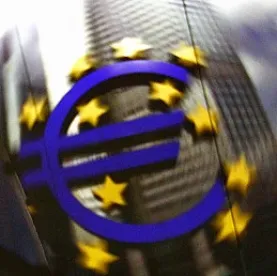Background on the Short Selling Regulation
European Union (“EU”) national regulators have regulated the short selling of shares and certain aspects of credit default swaps (“CDS”) since 1 November 2012, under the EU Short Selling Regulation[1] (“SSR”). The SSR applies to any person undertaking short selling of shares, sovereign debt, sovereign CDS and related instruments that are admitted to trading or traded on an EU trading venue. It also prohibits the entry into uncovered sovereign credit default swaps. The SSR does not relate to repos, securities lending, corporate and convertible bonds, although note that national regulators have powers (under Articles 18 to 21 of the SSR) to impose short selling restrictions on any financial instrument, if there is a serious threat to financial stability or to market confidence.
The SSR requires holders of net short positions in shares or sovereign debt to make notifications once certain thresholds have been reached, as well as applying a blanket ban on uncovered short sales in shares.
Article 20 of the SSR also provides powers to national regulators to suspend short selling or limit transactions where “exceptional circumstances” (meaning “adverse events or developments which constitute a serious threat to the financial stability or to market confidence”) exist. If an EU national regulator decides to impose such a temporary ban on short selling, that regulator is required to notify other EU regulators, the UK Financial Conduct Authority (“FCA”) and the European Securities and Markets Authority (“ESMA”). National regulators will then consider whether to apply that temporary ban in their own jurisdiction. The intention is to avoid short selling activity linked to particular shares moving to other jurisdictions where these shares are also traded.
There are a number of secondary and implementing regulations to the SSR[2], as well as an ESMA Q&A[3].
Application of the SSR to the UK
When introduced, the SSR and the delegated regulations applied directly in the UK (and other EU member states) without the need for implementation in national law. Certain aspects of the SSR either afford discretion to national regulators, or require those regulators to establish operational procedures to enable matters to be dealt with under national law. In the UK, these additional provisions were implemented by secondary legislation and changes to the FCA Handbook.
The UK withdrew from and ceased to be a member state of the EU on 31 January 2020. The negotiated withdrawal agreement entered into between the UK and the EU provides for a transition period, commencing on 31 January 2020 and ending on 31 December 2020, unless extended (such period, the “transition period”). The withdrawal agreement provides EU law such as the SSR, will be applicable to, and in the UK during the transition period. The UK also intends to “onshore” the SSR into UK national law, with the UK version of the SSR applying after the end of the transition period.
Temporary Prohibition on Short Sales in Certain EU Listed Securities
The COVID-19 pandemic has resulted in extreme volatility in equity markets across the EU. In response, a number of market regulators across the EU have taken action, using powers under Article 20 of the SSR to temporarily ban short selling in certain securities. As at the date of publication of this memorandum, the following actions have been taken by EU national regulators:
Austria
On 18 March 2020, the Austrian Financial Market Authority (“FMA”) issued a temporary prohibition on short sales of all shares that are admitted to trading on the Regulated Market of the Vienna Stock Exchange. The prohibition will stay in effect for an initial period of one month and started on 18 March 2020. The FMA’s press release and resolution are available here.
Belgium
Belgium’s Financial Services and Markets Authority (“FSMA”) announced the temporary prohibition for 17 March 2020, of the short selling of the shares of 18 issuers admitted to trading on the Belgian Euronext market. FSMA’s resolution and the list of affected shares are available here.
France
The Autorité des Marchés Financiers (“AMF”), the French financial regulator, issued a temporary prohibition on the short sales in relation to the shares of 90 issuers on the Paris exchange, commencing on 17 March 2020. AMF’s resolution and a list of the shares subject to the prohibition is available here.
Greece
The Hellenic Capital Markets Commission (“HCMC”) issued a temporary prohibition on short selling of all shares admitted to trading on the regulated market of the Athens Stock Exchange. The measure came into force on 18 March 2020 and will last until 24 April 2020. The HCMC announcement of the temporary prohibition is available here.
Italy
The temporary measure by the Commissione Nazionale per le Società e la Borsa (“CONSOB”), the Italian regulator, prohibits short selling applies to all the traded shares on the Italian regulated market, from 18 March 2020 until 18 June 2020. CONSOB’s decision is available here.
Spain
The Comisión Nacional del Mercado de Valores (“CNMV”) has issued temporary prohibition on short selling of shares of equities admitted to trading on all Spanish trading venues (the Madrid, Barcelona, Valencia and Bilbao Exchanges, and the Mercado Alternativo Bursátil), lasting for an initial period of one month, from 17 March 2020 until 17 April 2020. CNMV’s decision is available here.
ESMA
Under Article 27 of the SSR, within 24 hours of receiving a notification of a short selling prohibition from a national regulator, ESMA is required to issue an opinion on whether it considers the measure, or proposed measure, is necessary to address the exceptional circumstances identified by the national regulator. As at the date of this memorandum, the ESMA have issued a positive opinion in respect of all of the prohibitions described above.
The UK Position
The FCA issued a statement (the “FCA Statement”) on these short selling prohibitions on 17 March 2020. The FCA noted that when considering whether to use its short selling powers following action by another EU regulator, its standard policy has been to assist that regulator in enforcing the prohibition. The FCA further noted, however, that it has never used the relevant banning powers given to it under the SSR and that while it would not rule out such action in exceptional circumstances, it sets a high bar for imposing such a measure. The FCA Statement can be found here.
On 23 March 2020, the FCA issued a further statement on short-selling, which can be found here. In this further statement, the FCA provided more detail on why it has not introduced a short selling ban to date:
“The FCA continues closely to monitor market activity, including short selling activity. Aggregate net short selling activity reported to FCA is low as a percentage of total market activity and has decreased in recent days. It will continue to fluctuate, but there is no evidence that short selling has been the driver of recent market falls.
A great many investment and risk management strategies rely on the ability to take 'long' and 'short' positions. These benefit a wide range of ordinary investors including the pension funds for employees of companies and local government. We also note that short selling is a critical underpinning of liquidity provision. The loss of these benefits would need to be carefully balanced before determining that any intervention to prevent short selling was appropriate.”
Lowering of the Disclosure Threshold
ESMA published a decision (ESMA70-155-9546, available here) on 16 March 2020 that temporarily requires the holders of net short positions in shares traded on an EU regulated market to notify the relevant EU or UK national regulator, if the position reaches or exceeds 0.1% of the issued share capital after the entry into force of the decision. The standard threshold for disclosure to a regulator under SSR was previously 0.2% of the issued share capital, with a threshold for public disclosure of the net short position set at 0.5%.
These reporting obligations apply to any natural or legal person, irrespective of their country of residence. They do not apply to shares admitted to trading on a EEA or UK regulated market where the principal venue for the trading of the shares is located in a third country, or to market making or stabilisation activities.
The decision entered into force on 16 March 2020 and will last until 16 June 2020.
ESMA explained that the lowering of the reporting threshold is a precautionary measure to allow EU regulators to better monitor developments in markets under the exceptional circumstances linked to the impact of the ongoing 2019 COVID-19 pandemic, which ESMA describes as constituting a serious threat to market confidence in the EU.
The FCA Statement indicated that it will apply this temporary change to the reporting thresholds, but that this would involve changes to its systems. Until the FCA has made these changes, it has indicated that it expects firms providing reports in respect of UK listed shares to use the previous, 0.2% threshold.
Market Implications and Jurisdictional Scope
While the long-term effectiveness of the short selling prohibitions in stabilising prices is very much open to question, these measures are a clear indication that EU regulators have substantial concerns about financial stability being affected by the COVID-19 pandemic.
Some in the EU have been calling on ESMA to go further, by exercising emergency powers under Article 28 of the SSR to ban short-selling for a temporary period across all of the EU. These powers were controversial at the time of introduction of the SSR and were unsuccessfully challenged by the UK Government in the Court of Justice of the EU (based on arguments that ESMA had been vested with powers that it could not have according to the EU Treaties). Given this background, and the reluctance of many other EU national regulators to impose prohibitions under Article 20, it looks unlikely at this time that an EU-wide ban will be imposed.
The SSR notification obligations (and the overarching restriction on holding an uncovered short position) will apply to any person holding a net short position, regardless of where they are established. The SSR requires EU countries to establish rules on penalties and administrative measures for infringements of the SSR which are "effective, proportionate and dissuasive". In practice, most EU countries have a regime where breaches of the notification requirement can be punished through fines levied under administrative law in the relevant member state. EU regulators have in the past sought to penalize non-EU persons for breaches of the Short Selling Regulation and under the EU’s market abuse regime.
The emergency prohibitions made by EU regulators similarly apply to all short-sellers, including those in the US, where the relevant shares are traded in the EU. For these purposes, it is possible that the calculation of what constitutes a short position may vary somewhat among jurisdictions. In Spain for example, the CNMV have clarified that in the context of the prohibition, net short positions will include derivatives and other synthetic short positions relating to a share or any other financial instrument, which should also include short positions in relation to ADRs. This is not always made clear in the other prohibitions, although our understanding is that local regulators will enforce the prohibition to include ADRs, GDRs, derivatives and other methods providing a synthetic exposure to an EEA listed equity.
[1] Regulation (EU) No 236/2012
[2] Commission Delegated Regulation (EU) 826/2012, 918/2012, 919/2012, as well as Commission implementing Regulation 827/2012
[3] https://www.esma.europa.eu/sites/default/files/library/esma70-145-408_qa_on_ssr.pdf







 />i
/>i

